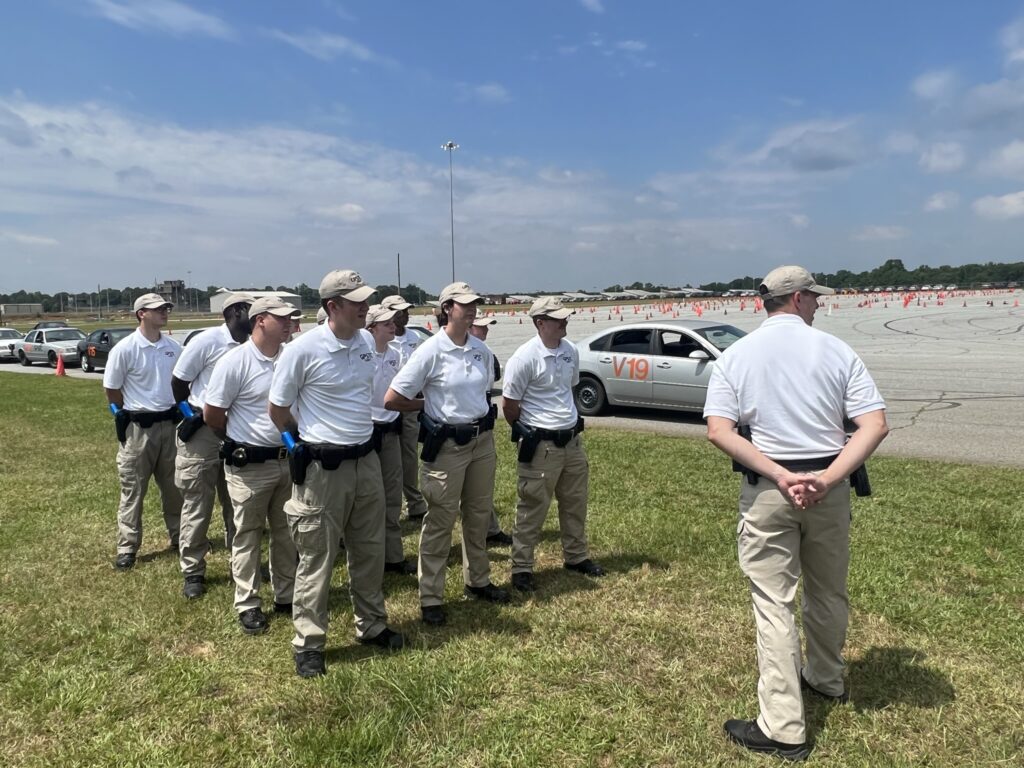Micah Noel
As the first-ever class of the Academic Law Enforcement Training Exchange (ALETE) graduate, interest forms for the upcoming training have become available. This program, commonly called ALETE, is exclusive to The University of West Georgia and is provided in the summer for undergraduate students. Applicants will be contacted in the early spring, allowing them a chance to bridge the gap between graduation and law enforcement opportunities.
ALETE is the first program of its kind here in the state, and it is the only undergraduate program to work directly with the Georgia Public Safety Training Center (GPSTC). If the training is completed, participants can receive a Georgia Peace Officer Standards and Training Council (POST) certification, bypassing the state-mandated training requirement.
Typically, a career in law enforcement begins shortly after graduation. After being accepted by an agency, a new hire must complete their basic mandate training. This training, lasting 12 weeks, is required by law and is paid for by the agency.
“So, your agency would pay you your salary, benefits, travel, meal per diem,” said Program Director and Assistant Professor of Civic Engagement and Public Service Dr. Dave Ayers. “Let’s say an agency hires a person, and they go 10 -12 weeks and then fail. So, all that money they pay them, they just lost.”
Another pattern is if a university already provides a training academy within its curriculum. The usual 12-week training now spans over four years, meaning the policing “basics” are forgotten by the time students graduate. ALETE provides a typical training model with the convenience of completing it alongside a degree.
“The agencies are really supportive, because the students get to have the opportunity to complete this in school,” said Dr. Ayers. “When they come out of The University of West Georgia they get their bachelor’s degree and they are mandated.”
Students interested in the program can expect an easy first step as the interest form only asks for their name and contact information. Students will then be contacted to complete the application process through the University’s Police Department.
“The actual application process is rather lengthy because you have to apply to not only GPSTC but you have to apply to POST,” Dr. Ayers said. “We start it so early because the process takes at least two months.”
Participants will be expected to take a Physical Aptitude Test (PAT) when the application is completed.
“The obstacle tries to resemble some of the things officers may encounter on the job,” said Dr. Ayers.
The half-court obstacle course includes hurdles like jumping through a window frame, jumping over a ditch, and dragging a 150-pound dummy.
Following the PAT, students will begin training, hoping to graduate in early August. Beginning in May, training is classroom-based. June starts hands-on training, bringing students down to GPSTC’s main campus in Forsyth, Ga. The training concludes with a final test encompassing everything participants were taught for the past 12 weeks.
“It’s basically like a full-time job,” said Dr. Ayers. “You got to look at it as an investment.”
If students pass, they participate in graduation that concludes with a job fair, including agencies like the Georgia Bureau of Investigation, the Department of Natural Resources and The Department of Community Supervision. All the 11 graduates of last year’s program left graduation with job offers.
Dr. Ayers provides some advice for students who are still skeptical about taking the leap.
“The decision you’re making today…to take part in this and to go through this training,” said Dr. Ayers. “You might not know it, but the things you’re doing now may lead to saving somebody’s life.”
For more information, visit the ALETE page on the university’s website.
You may also like
-
UWG’s Ingram Library Hosts Pop-Up Study Spot to Help Students Prepare for Finals Week
-
UWG Offers Mental Health Support And Academic Services To Maintain Student Success During Finals Week
-
UWG Alumnus Shares His Experience Exploring the Underground Flood Channels of Las Vegas
-
Georgia Students Simulate the Struggles of Dementia
-
UWG PR Students Score a Georgia Power Tour at Atlanta Corporate Office
